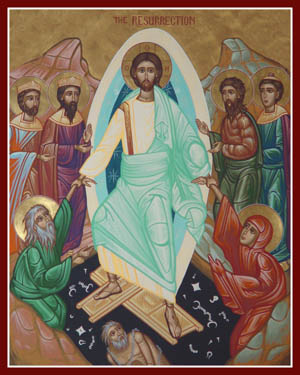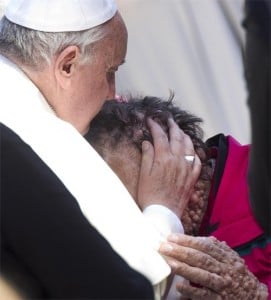 Yesterday I was sealed with the Holy Spirit and became an Orthodox Christian. What does this mean? As Father Deacon and I were making our way down to the church I told him that one thing that bothered me about so much Theology in the West is the continual insistence on trying to figure things out. With that said, he reminded me that the East has a problem with over-speculation which is why most of the heresies come from the East. To be sure, I know I am new to this way and need to be careful lest I’m a little over-zealous or just a blabbering romantic.
Yesterday I was sealed with the Holy Spirit and became an Orthodox Christian. What does this mean? As Father Deacon and I were making our way down to the church I told him that one thing that bothered me about so much Theology in the West is the continual insistence on trying to figure things out. With that said, he reminded me that the East has a problem with over-speculation which is why most of the heresies come from the East. To be sure, I know I am new to this way and need to be careful lest I’m a little over-zealous or just a blabbering romantic.
Yesterday in so many Western churches it was Trinity Sunday or the Solemnity of the Most Holy Trinity. Today I no longer call this a “doctrine” as much as the discovery of the nature of God as Three persons who are yet co-eternal in one substance and therefore in One God. I am no longer in the business of debating what it means as much as accepting that the way I have chosen is about experiencing the Trinity in worship. I can only describe God in my experience and through the experiences of the saints.
Have you ever tried to explain the Trinity so it makes sense? Good luck. The truth is that it makes no sense to any capability of human reason we can muster up. It is a mystery. It is no doubt the greatest mystery of the Christian faith and at the same time the most fundamental. Yet the nature of God is the most debated and discussed issue in all of Christianity. It’s why we have theology or “reasoning out God.” Here’s a little secret about the Eastern Orthodox tradition though: there aren’t many saints who are called “theologian.”
Theology isn’t so much about debating and reasoning out God as it is bearing witness to one’s experience with God. There are three saints recognized as theologian in the East: St. John the Evangelist, St. Gregory Nazianus, and St. Symeon the New Theologian. Why? The reason is that these three are recognized as having the authentic experience of union with God and it is from this union and mystical experience that their understanding of God emerges. Theology is the creative process of God working within us. It is a giving and receiving of the presence of God that we share with each other. Through the Eucharist, God literally communicates God’s very being with us.
As Metropolitan Maximos of Pittsburgh writes:
What counts when speaking about God is not how much we can understand of His Mystery and how much we can say; what counts is the mystical experience itself as we encounter God beyond concepts and ideas. Such experience cannot be fully conceptualized. However, something has to be said about our mystical experience of God in God’s communion and Presence, as God communicates Himself to us in His “energies.” That “something” is our share in “theologizing,” and our poor way of speaking about God’s Mystery, always inadequate and always imperfect.
Yesterday I took my first communion. The Holy Spirit was sealed in me with the anointing of the oil. It was a confirmation of my baptism and recognition that I have chosen a new way of relating to God. Father said before I partook of the mystery that as a long student trained in Reformed theology, as he once was, I had to unlearn a lot. This has been very true. But for every thing I have unlearned I have learned that those questions that didn’t have answers no longer need rational explanations. Those questions require participation in the very being of God.











